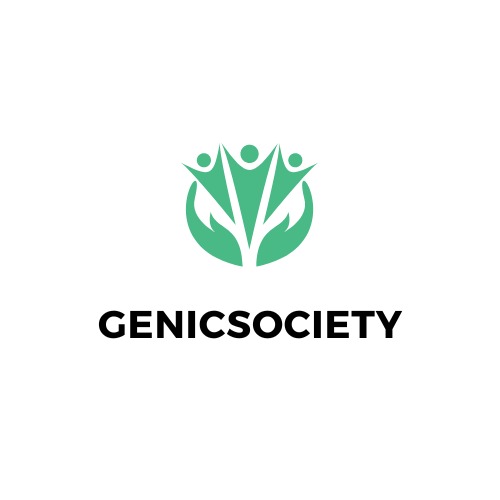Industrial efficiency has become a critical factor in the success of modern manufacturing and production facilities. With rapid advancements in technology and a greater emphasis on sustainability, industries are increasingly adopting solutions that optimize performance, reduce energy consumption, and streamline operations. This article explores modern solutions and innovations that are transforming industrial efficiency, focusing on two key areas: high efficiency steam boiling units and distillery boilers.
The Importance of Industrial Efficiency
Industrial efficiency is more than just minimizing waste or reducing energy costs. It encompasses optimizing all facets of production, from machinery operation to resource management. Improving efficiency not only enhances productivity but also contributes to sustainability by reducing emissions and conserving energy. Many companies are now prioritizing investments in technologies and systems that offer long-term gains in these areas.
Benefits of Enhanced Industrial Efficiency
- Cost Savings: Reducing energy usage leads to lower operational costs, allowing companies to invest in other growth opportunities.
- Environmental Impact: Efficient operations result in fewer carbon emissions, helping industries align with environmental regulations and sustainability goals.
- Improved Productivity: Modern innovations allow faster, more reliable production, minimizing downtime and maximizing output.
- Competitive Advantage: Companies that adopt efficient solutions often gain a competitive edge by being able to produce more at a lower cost.
The integration of high-performance equipment, such as advanced steam boiling units and specialized boilers for distilleries, is at the forefront of driving these benefits.
High Efficiency Steam Boiling Units: Revolutionizing Heat Generation
Steam generation is a critical component in many industrial processes, from food production to chemical manufacturing. Traditional steam boilers are known to consume large amounts of energy and require substantial maintenance, often leading to inefficiencies. Modern high efficiency steam boiling units are transforming this landscape by offering improved performance, energy conservation, and reduced operational costs.
Key Features of High Efficiency Steam Boiling Units
- Energy Efficiency: High efficiency steam boiling units are designed with advanced combustion technology, which maximizes the conversion of fuel into heat. This reduces fuel consumption and, consequently, operational costs.
- Compact Design: Many of these units have a smaller footprint than traditional boilers, allowing for more efficient use of floor space in industrial settings. Their compact size also facilitates easier installation and maintenance.
- Faster Steam Generation: These units are equipped with rapid response mechanisms that allow for quicker steam generation, reducing the startup time and improving overall process efficiency.
- Automation and Control: Modern steam boiling units often come with automated control systems that monitor temperature, pressure, and fuel consumption in real-time. This allows for more precise adjustments and reduces the need for manual intervention, enhancing operational safety and performance.
- Sustainability: Many high efficiency steam boilers are designed to meet or exceed environmental regulations, reducing emissions and contributing to an eco-friendly operation.
The application of high efficiency steam boiling units in industries requiring consistent heat supply can lead to significant operational improvements. As industries face increasing energy costs and stricter environmental standards, these units provide a viable solution for achieving both cost savings and sustainability.
Distillery Boilers: Meeting the Demands of Specialized Industries
The distillation industry, particularly for alcohol and spirits, relies heavily on boilers to maintain the consistent temperatures required for fermentation and distillation. Distillery boilers are specialized units designed to meet the unique needs of distillation processes, which require precise temperature control, energy efficiency, and reliability.
Modern Innovations in Distillery Boilers
- Energy Conservation: Distillery boilers have seen significant advancements in their energy efficiency. Modern designs often incorporate waste heat recovery systems that recycle excess heat for reuse in the production process. This results in reduced energy consumption and lower operating costs for distilleries.
- Precision in Temperature Control: For distilleries, maintaining the exact temperature at different stages of production is essential for producing high-quality spirits. Modern distillery boilers are equipped with advanced control systems that offer precise temperature regulation, ensuring that the fermentation and distillation processes are optimized for consistency and quality.
- Durability and Longevity: Distillery boilers are designed to withstand continuous operation and the corrosive environment created by the distillation process. Innovations in materials and design have improved the durability and lifespan of these boilers, reducing the need for frequent replacements and downtime.
- Environmental Compliance: Like other industrial boilers, distillery boilers are now being designed to comply with environmental regulations. This includes incorporating technologies that reduce emissions of harmful gases and improve overall operational efficiency.
- Scalability and Customization: Modern distillery boilers can be customized to meet the specific needs of different production scales, from small craft distilleries to large-scale industrial operations. This scalability allows distilleries to choose the right boiler system for their specific production requirements, ensuring optimal performance and cost-effectiveness.
Integrating Modern Solutions for Sustainable Growth
The adoption of high efficiency steam boiling units and distillery boilers represents just two examples of how modern innovations are unlocking industrial efficiency. As industries continue to evolve, the integration of automated systems, energy recovery solutions, and sustainable technologies is becoming crucial for maintaining competitiveness and achieving long-term growth.
For businesses looking to improve their operational efficiency, investing in advanced equipment is a strategic decision that offers both immediate and long-term benefits. By focusing on efficiency, companies can not only reduce their costs but also enhance their environmental credentials, opening up new opportunities in a marketplace that increasingly values sustainability.
Conclusion
Unlocking industrial efficiency is a multifaceted challenge that requires a combination of technological innovation, process optimization, and sustainable practices. High efficiency steam boiling units and distillery boilers are two examples of how modern solutions are driving industrial performance to new heights. By adopting these innovations, companies can achieve greater productivity, cost savings, and environmental responsibility, setting the stage for continued success in a competitive global market.
